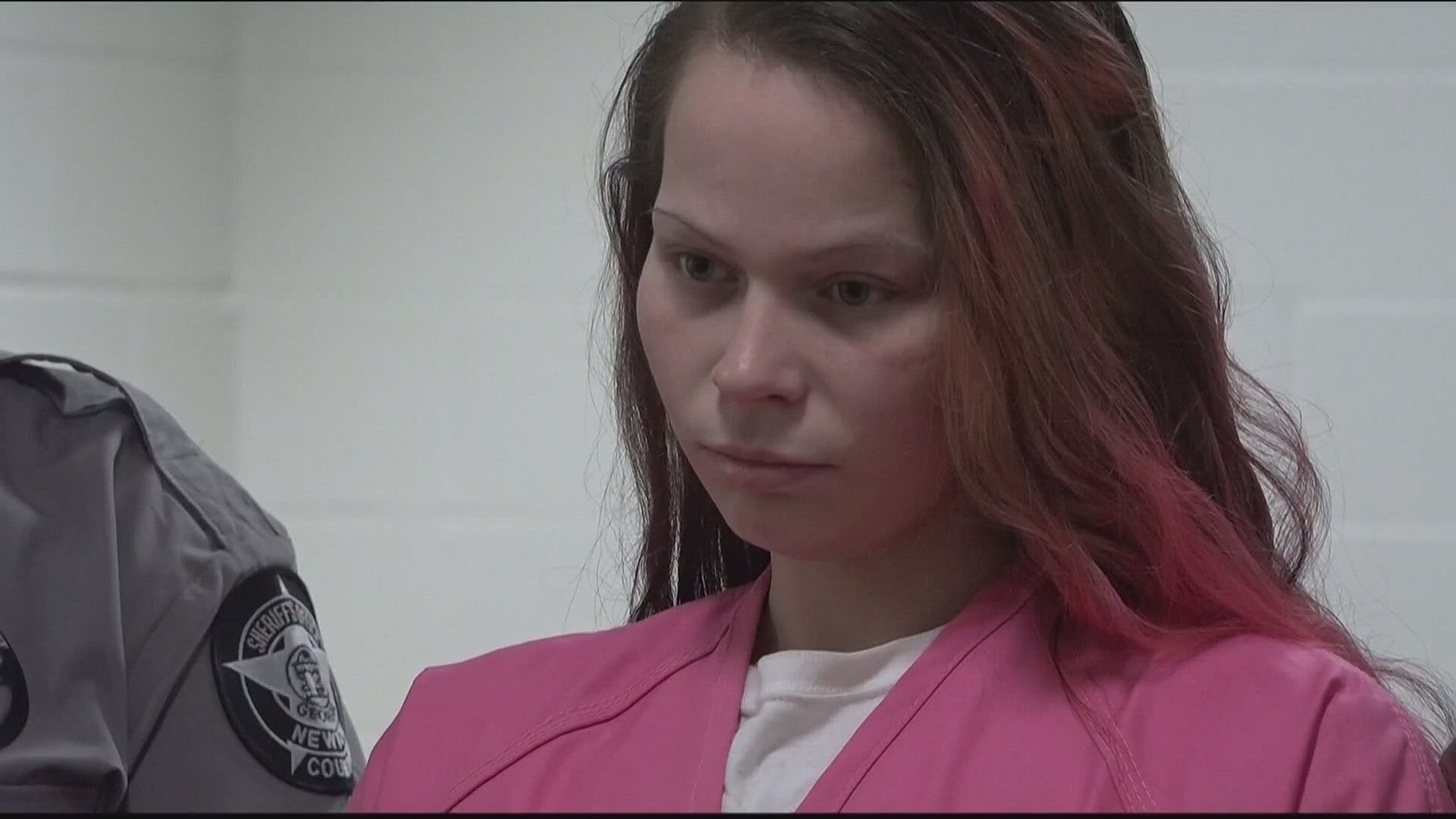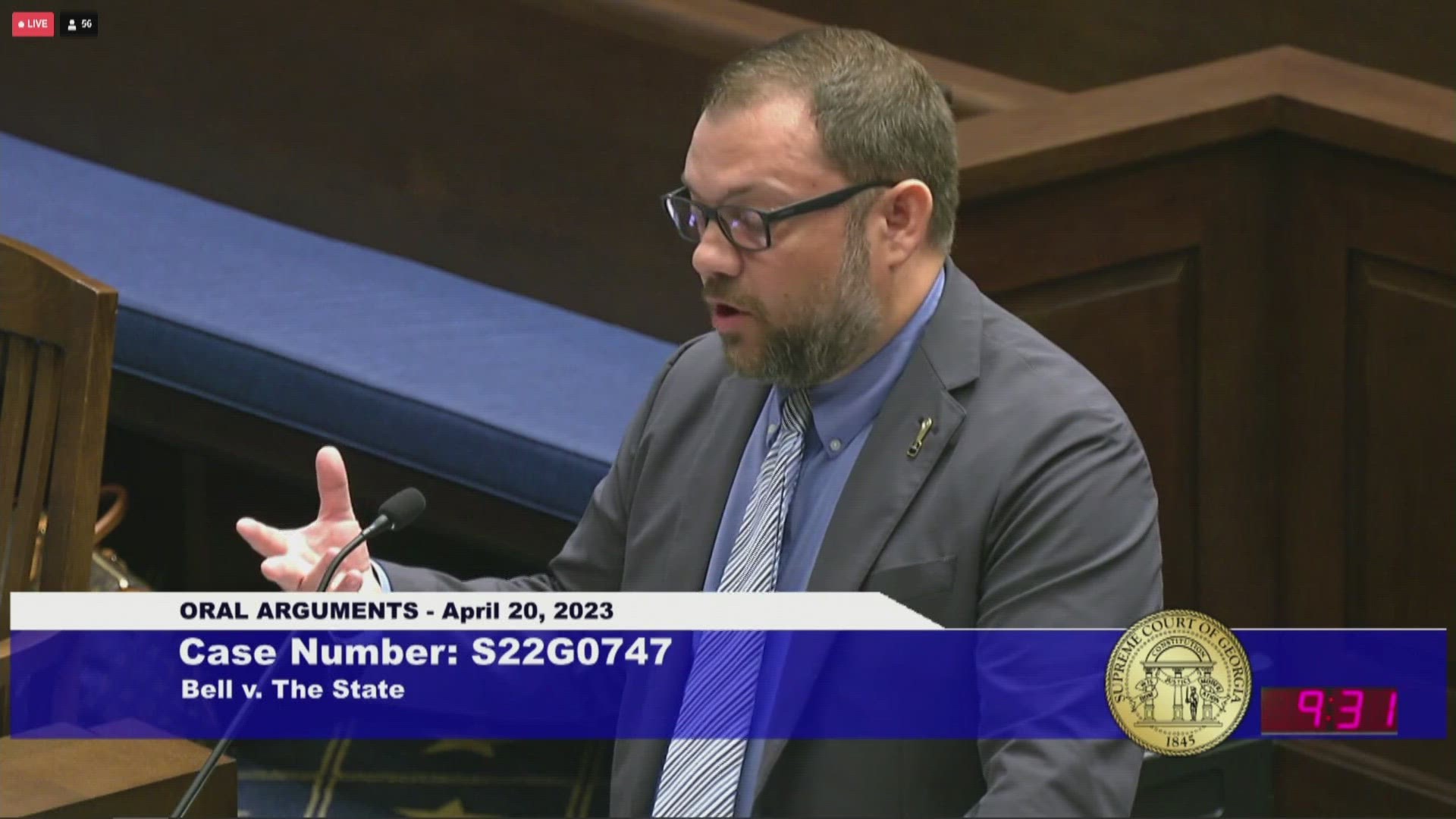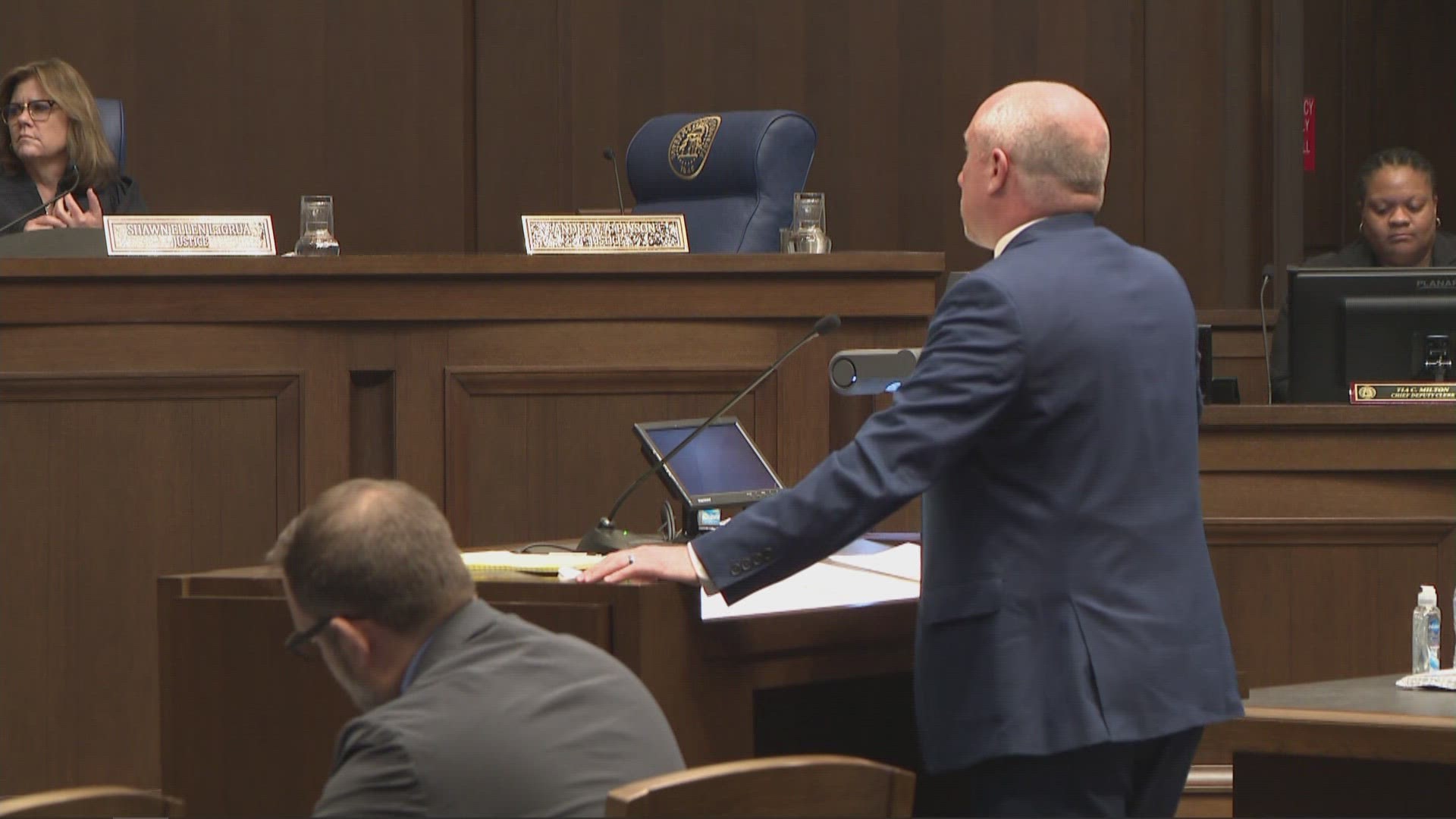ATLANTA — The Georgia Supreme Court on Thursday heard an appeal from a mother who is seeking to have the last part of her conviction in her two-week-old daughter's death overturned.
Cortney Bell was convicted of second degree murder, second degree child cruelty and the charge of contributing to the deprivation of a child after a trial in 2019.
Her two-week-old daughter, Caliyah McNabb, was found dead near the trailer she shared with Christopher McNabb in 2017 after they woke up to find their daughter missing. McNabb was accused as the killer and convicted of murder in the same 2019 trial.
Oral arguments were heard from lawyers representing Bell and the state. Bell's lawyer, Eric Crawford, believes she should not be tied to her daughter's death.
“What we’re asking the Supreme Court to do is basically overturn the contributing to depravation of a minor charge simply because she didn’t know what he was going to do. She didn’t know this horrific act was going to happen and couldn’t have predicted it," Crawford said. "To hold her criminally accountable for something she couldn’t predict and something so personally devastating to her, I don’t think it’s right. So I hope they overturn the final charge and she’s able to get out and get on with her life.”
Newton County District Attorney Randy McGinley argues an environment of domestic violence and drug use directly led to the newborn's death.
"Ms. Bell and Mr. McNabb’s lifestyle – using meth together, his violence towards her, everything in totality led to – in my opinion – it was foreseeable something bad would happen to baby Caliyah, and it did. The worst thing possible happened," McGinley said. “This last charge really relates to her parenting, as far as how she left her child in a delinquent state – meaning the child was someone who needed help, something more than what Ms. Bell was providing. Your child is more important than methamphetamine.”
The full arguments can be heard in the players below—a decision is expected from judges in the coming months.
McNabb's conviction and life sentence was upheld by the state Supreme Court last year. Bell's, however, was overturned - with the Georgia Court of Appeals holding there was insufficient evidence to find her guilty on the two charges of second degree murder and second degree child cruelty.
The appeals court did find that the conviction on her third charge, contributing to the deprivation of a child - which is a felony - should stand.
Bell is now appealing that last part of the ruling to the state Supreme Court on Thursday.
The mom's lawyers argue that prosecutors during the trial "presented zero evidence that directly tied Ms. Bell's conduct to the death of Caliyah" that would justify the deprivation conviction.
They argue the prosecution used a stretched theory that she was a "bad mother for allowing McNabb, the children's father, to reside in the trailer with the children" and thus allowed the conditions - through him and his behavior - that contributed to Caliyah's death.
"A spouse or significant other bashing in your child’s head in the early morning hours is not “a reasonably probable consequence” of maintaining a dirty residence, allowing the father of a child to reside there, or partaking in methamphetamine," Bell's lawyers argue.
The State counters in a filing that, by her own admission in interviews with investigators, she acknowledged, "That's the only thing that I should be charged with... I mean, I've already - we talked about that, and I agreed to that," and, "I am guilty of somewhat neglect because I did drugs."
"There was sufficient evidence for the jury to conclude that Appellant committed acts that caused the victim to be neglected and in need of protection from the court and that act or failure to act resulted in the death of (Caliyah)," the State argues. "Appellant admitted that she was guilty of neglecting her child and providing an inadequate and unsafe environment for the child. Her criminal negligence was the proximate cause of her child’s death, because had she protected her child, as a parent of any child should do (especially that of a very young and fragile baby) the child would be alive."
Justices on the Georgia Supreme Court must weigh whether baby Caliyah's death was brought on directly by Bell's history as a parent. If the Supreme Court overturns the Newton County mother's last felony, she could be released from prison. The Georgia Supreme Court is expected to release its ruling within the next six months.



